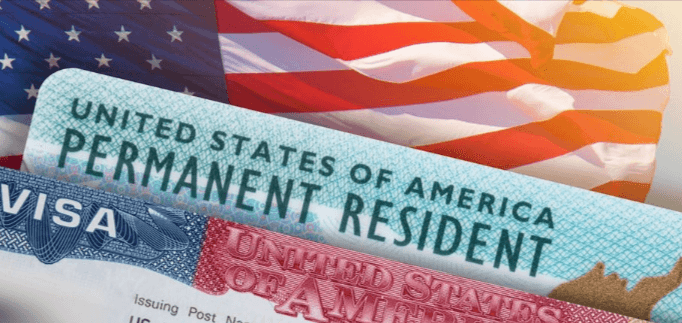EB-1 Green Card Requirements: What You Need to Know

The EB-1 visa category, also known as the “priority worker” visa, is a prestigious path to permanent residency in the United States for highly skilled individuals. If you are an individual with extraordinary accomplishments in your field or a multinational executive, you may qualify for an EB-1 Green Card that will allow you to live and work permanently in the United States. This article will break down the EB-1 Green Card requirements, explain who qualifies, and outline the application process.
Who Qualifies for an EB-1 Green Card?
The EB-1 Green Card is reserved for individuals who can demonstrate extraordinary ability or achievement in their field. There are three sub-categories under the EB-1 visa:
- EB-1A: Individuals of Extraordinary Ability
- This category is for individuals who have demonstrated extraordinary ability in the sciences, arts, education, business, or athletics. These individuals must be able to demonstrate sustained national or international acclaim and that their achievements have been recognized in their field.
- EB-1B: Distinguished Professors and Researchers
- This category is for individuals who have achieved significant recognition as professors or researchers. Applicants must have a record of excellence in their academic field and meet other criteria, such as at least three years of teaching or research experience.
- EB-1C: Multinational executives and managers
- This category is for multinational executives or managers who have been employed by a company or corporation abroad and are being transferred to a U.S. branch or subsidiary of the same company. The applicant must have held a managerial or executive position for at least one year.
Each of these subcategories has its own set of eligibility criteria, which are discussed in detail below.
Specific Requirements for Each EB-1 Subcategory
EB-1A: Extraordinary Ability
To qualify for the EB-1A category, applicants must demonstrate extraordinary ability in their field. This can be demonstrated through a combination of awards, publications, leadership roles, or other accomplishments. Some of the most important forms of evidence include
- Internationally or nationally recognized awards or honors
- Membership in associations that require excellence
- Published material about the nominee’s work in professional or major trade publications
- Participation as a judge or panelist in their field
- Evidence of original contributions to the field
- Authorship of scientific articles or publications
One of the advantages of the EB-1A visa is that it does not require an employer to sponsor the petition. Applicants can petition themselves, meaning they can file directly with the U.S. Citizenship and Immigration Services (USCIS) without needing a job offer from a U.S. employer. However, the bar for demonstrating extraordinary ability is high, and applicants must show consistent recognition of their accomplishments.
EB-1B: Distinguished Professors and Researchers
The EB-1B subclass is reserved for professors and researchers who have achieved international recognition in their academic field. To qualify, applicants must meet several criteria:
- At least three years of teaching or research experience in the field
- International recognition for academic contributions
- A tenure-track offer from a U.S. university or academic institution
In addition, the petition must show that the applicant has distinguished himself or herself in his or her field through major academic publications, leadership in prestigious academic organizations, or original research that has impacted his or her field of study.
Unlike the EB-1A, the EB-1B requires an offer of employment, meaning that applicants must have a committed U.S. employer willing to sponsor their petition.
EB-1C: Multinational Executives and Managers
The EB-1C category is designed for multinational executives and managers who are being transferred to a U.S. office of the company for which they work abroad. To qualify under this category, applicants must
- Be employed in a managerial or executive capacity by the foreign subsidiary for at least one of the last three years.
- Be transferred to the U.S. to work in a managerial or executive capacity
- Have a U.S. employer that is a branch, affiliate, or subsidiary of the foreign company
The job offered in the U.S. must be at a similar executive or managerial level, and the company must do business in both the U.S. and another country.
Read also Common Plumbing Myths Busted: What Every Homeowner Should Know
How to prove eligibility
In order to successfully apply for an EB-1 Green Card, applicants must provide strong evidence of their qualifications. Documentation requirements vary by subcategory, but in general, applicants must provide
- Letters from peers and experts in the field attesting to their accomplishments
- Copies of awards, recognitions, or memberships in prestigious organizations
- Published material about their work, including research papers, articles, or citations
- Records of their participation as judges or panelists in their field.
It’s important to gather and organize this documentation early in the process, as any missing evidence could delay or harm the petition. Because of the complexity of proving extraordinary ability or international recognition, many applicants choose to work with an immigration attorney who can help ensure the strongest possible case.
EB-1 Green Card Application Process
The EB-1 green card application process begins with the filing of Form I-140, Immigrant Petition for Alien Worker. The EB-1A and EB-1B categories do not require labor certification, which is typically required for other employment-based visas. This expedites the process and makes EB-1 applicants a priority for approval.
Once the Form I-140 is approved, applicants may apply for adjustment of status (Form I-485) if they are already in the U.S. If applying from abroad, the next step would be consular processing through a U.S. embassy or consulate. The timeline for the entire process can vary depending on the applicant’s country of origin and individual circumstances.
Is the EB-1 Green Card Right for You?
The EB-1 Green Card is a highly sought-after immigration option for individuals with extraordinary skills or accomplishments. If you believe you qualify, it can be the fastest route to permanent residency in the United States. However, due to the stringent requirements and documentation involved, working with an experienced immigration attorney can significantly increase your chances of success.





